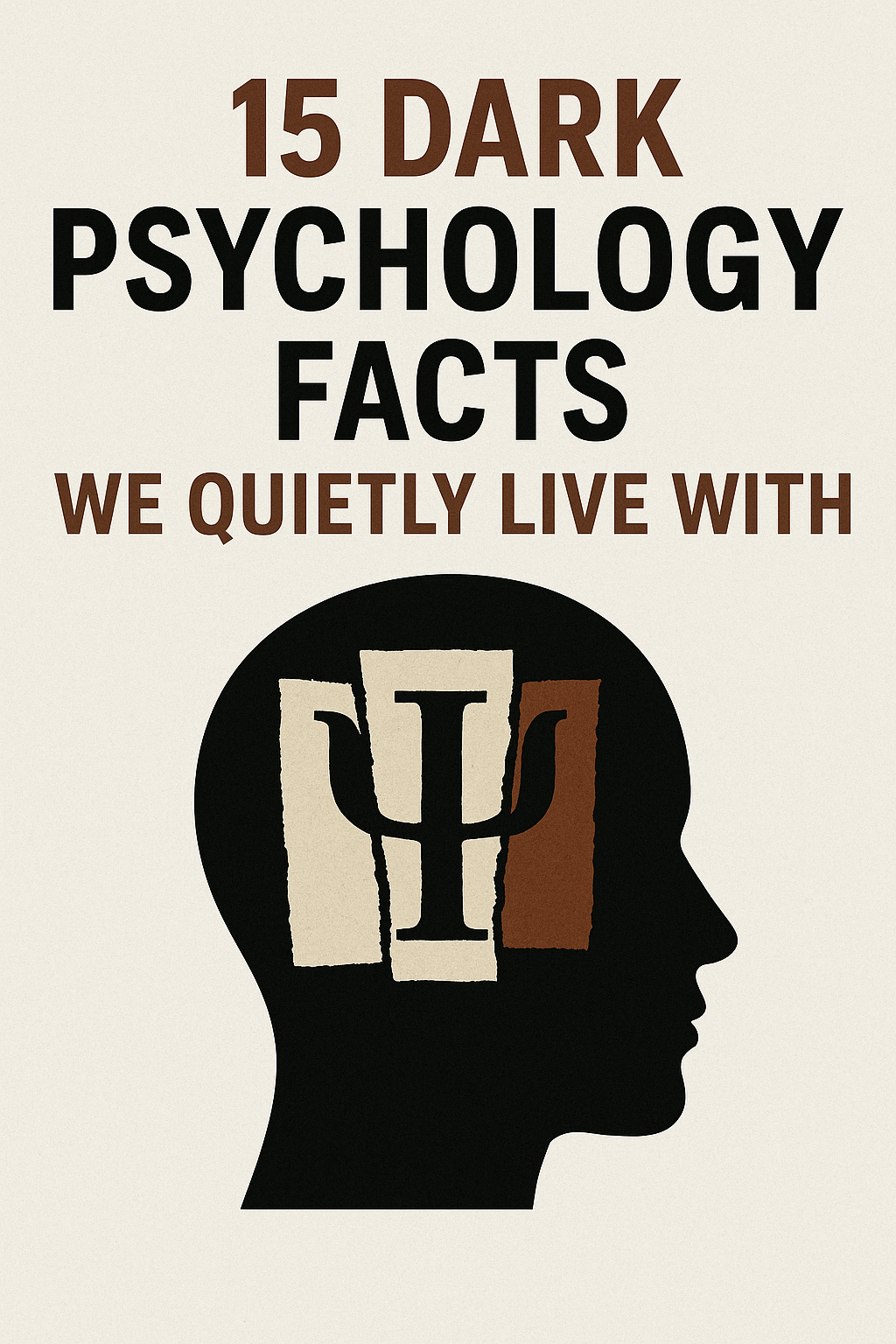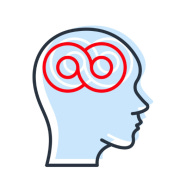15 Dark Psychology Facts We Quietly Live With

I was at a wedding not long ago where a small sign sat at the buffet: “Take small to feed us all.” At first, I bristled, it felt scolding, almost rude. But the more I thought about it, the more it struck me as a quiet example of human psychology at play. The hosts weren’t trying to shame anyone; they were protecting against the very instincts that live in us all: to grab, to hoard, to want more than we need.
That’s the subtle heartbeat of dark psychology, not evil in itself, but the hidden ways our minds nudge us, often without our consent. Here are 15 facts that shed light on this shadow side of human nature.

1. Scarcity Changes Behavior
When we believe something is limited (food, time, love), we take more than we need. It’s not greed, it’s survival instinct.
2. Signs Shape Actions
A simple sign or suggestion can reroute behavior. Authority doesn’t always need force; often, a few well-placed words do the job.
3. Guilt Is a Social Glue
Humans are wired to feel guilt when we think we’ve taken too much. Communities survive on this quiet emotional current.
4. The Bystander Effect Is Real
The more people who witness a problem, the less likely any single one will act. Responsibility diffuses, like spilled water.
5. Fear Outweighs Logic
We’re more likely to avoid loss than to chase gain. A buffet warning about “running out” will shape behavior more than “enjoy freely.”
6. We’re Predictably Manipulable
Marketers, cult leaders, and even hosts at a wedding know: frame the choice well, and most people will follow.
7. Small Rules Feel Bigger in Groups
What we’d ignore alone (like “don’t take too much”) suddenly matters when others are watching. Social eyes amplify shame.
8. We Confuse Plenty With Value
The fuller the plate or the closet, or the calendar—the more we believe we’re “rich.” Yet it often leaves us emptier.
9. Authority Bias Is Powerful
If a message comes from someone we perceive as “in charge,” we accept it more easily, even when it feels uncomfortable.
10. Social Proof Steers Us
If the people ahead of us at the buffet take small portions, we’ll likely do the same. We mirror more than we think.
How Accurate Are Your Memories?
How Childhood Trauma Speeds Up Your Body’s Aging Process
How Family History Affects Mental Illness
How Positive Psychology Can Help You Stay Strong
How to Avoid the Hidden Traps of Success
11. We Rationalize After the Fact
We like to believe our choices are thoughtful. But often, we act first (pile the plate) and justify later (“I was just hungry”).
12. Subtle Shame Works Faster Than Force
Nobody polices a buffet line, but a gentle suggestion can spark shame strong enough to change behavior instantly.
13. We’re Drawn to What’s Forbidden
Ironically, if the sign had read “don’t take the stuffed shells,” that’s exactly what many people would crave first.
14. Manipulation Doesn’t Always Mean Malice
Not all influence is sinister. Sometimes, it’s just practical nudging—like making sure there’s enough lasagna to go around.
15. Awareness Is Power
The more we see these hidden levers, the less easily they control us. Influence loses some of its grip when it’s exposed.
Dark psychology isn’t always about villains in movies or cold manipulators in boardrooms. Sometimes it’s as simple as a wedding buffet sign that makes you pause before scooping too much pasta. The shadow lives in ordinary moments, but so does the chance to notice, reflect, and choose more wisely.
Unlock the deeper layers of Human Philosophy, exclusive essays, member Q&As, and timeless reflections.
Suggested Readings
- Can Truth Survive the Post‑Fact Age?
- The Unsent Message: Why the Words We Never Speak Shape Our Lives
- The Day You Die Before You Die
- Is Life Meaningful Without Suffering?
- 9 Brutal Psychology Truths That Will Break You First, Then Set You Free
- 11 Shocking Psychological Facts About Human Behaviour
- 🧠 101 Psychology Tricks They Use to Control You — And You Never Even Realized
- REAL LIFE CHEAT CODES TO GET AHEAD OF 90% OF PEOPLE
- 101 Dark Psychology Tactics: How They Work and Why You Should Know Them
- How To Read Anyone Instantly - 17 Psychological Tips
- Women Is Not A Car...!




